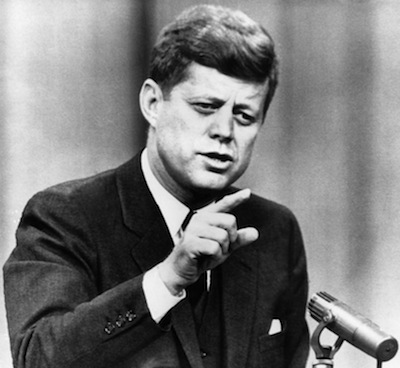 November, 22nd marks the 50th anniversary of the assassination of JFK…
November, 22nd marks the 50th anniversary of the assassination of JFK…
To this day, multiple books come out practically every year concerning the conspiracy surrounding President John F. Kennedy‘s death which remains mystery to many.
Largely overlooked, however, is what has always struck me as one of the most powerful pieces of writing ever composed in the days following Kennedy’s death by New York Daily News columnist and Pulitzer Prize winning journalist and author, Jimmy Breslin.
Breslin started his career as a pitch man for beer commercials, capitalizing on his resonate voice rather than his writing skills; but his writing eventually came to the surface where he was often compared to Ernest Hemingway for his common man approach and style. Breslin moved into investigative reporting and developed close ties with the Mafia and in the 1970’s and was critically beaten at the hands of mobster Jimmy Burke. Burke was upset over a story Breslin had written. Breslin later became a pen pal of Son of Sam killer, David Berkowitz, who would send him letters during the investigation.
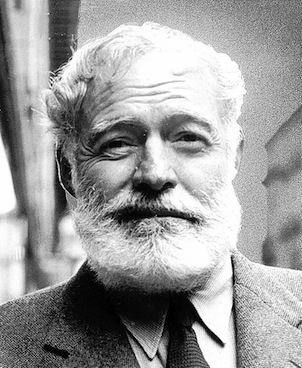 But my favorite of Breslin’s many works came in a New York Herald Tribune column in November 1963, entitled “Digging JFK Grave Was His Honor.” In it Breslin drifts between the job of grave digger Clifton Pollard, to Jackie Kennedy’s role after her husband’s death and finally, back to Arlington, from the back side of the hill where Clifton went back to his job, digging more graves for yet to be known occupants.
But my favorite of Breslin’s many works came in a New York Herald Tribune column in November 1963, entitled “Digging JFK Grave Was His Honor.” In it Breslin drifts between the job of grave digger Clifton Pollard, to Jackie Kennedy’s role after her husband’s death and finally, back to Arlington, from the back side of the hill where Clifton went back to his job, digging more graves for yet to be known occupants.
I’m not a fan of massive quoting or reprinting of other’s stories (aka the Star’s Glenn Rice) but this is worth sharing because I love Breslin’s style:
Washington — Clifton Pollard was pretty sure he was going to be working on Sunday, so when he woke up at 9 a.m., in his three-room apartment on Corcoran Street, he put on khaki overalls before going into the kitchen for breakfast. His wife, Hettie, made bacon and eggs for him. Pollard was in the middle of eating them when he received the phone call he had been expecting. It was from Mazo Kawalchik, who is the foreman of the gravediggers at Arlington National Cemetery, which is where Pollard works for a living. “Polly, could you please be here by eleven o’clock this morning?” Kawalchik asked. “I guess you know what it’s for.” Pollard did. He hung up the phone, finished breakfast, and left his apartment so he could spend Sunday digging a grave for John Fitzgerald Kennedy.
When Pollard got to the row of yellow wooden garages where the cemetery equipment is stored, Kawalchik and John Metzler, the cemetery superintendent, were waiting for him. “Sorry to pull you out like this on a Sunday,” Metzler said. “Oh, don’t say that,” Pollard said. “Why, it’s an honor for me to be here.” Pollard got behind the wheel of a machine called a reverse hoe. Grave digging is not done with men and shovels at Arlington. The reverse hoe is a green machine with a yellow bucket that scoops the earth toward the operator, not away from it as a crane does. At the bottom of the hill in front of the Tomb of the Unknown Soldier, Pollard started the digging (Editor Note: At the bottom of the hill in front of the Custis-Lee Mansion).
Leaves covered the grass. When the yellow teeth of the reverse hoe first bit into the ground, the leaves made a threshing sound which could be heard above the motor of the machine. When the bucket came up with its first scoop of dirt, Metzler, the cemetery superintendent, walked over and looked at it. “That’s nice soil,” Metzler said. “I’d like to save a little of it,” Pollard said. “The machine made some tracks in the grass over here and I’d like to sort of fill them in and get some good grass growing there, I’d like to have everything, you know, nice.”
James Winners, another gravedigger, nodded. He said he would fill a couple of carts with this extra-good soil and take it back to the garage and grow good turf on it. “He was a good man,” Pollard said. “Yes, he was,” Metzler said. “Now they’re going to come and put him right here in this grave I’m making up,” Pollard said. “You know, it’s an honor just for me to do this.”
Pollard is 42. He is a slim man with a mustache who was born in Pittsburgh and served as a private in the 352nd Engineers battalion in Burma in World War II. He is an equipment operator, grade 10, which means he gets $3.01 an hour. One of the last to serve John Fitzgerald Kennedy, who was the thirty-fifth President of this country, was a working man who earns $3.01 an hour and said it was an honor to dig the grave.
Yesterday morning, at 11:15, Jacqueline Kennedy started toward the grave. She came out from under the north portico of the White House and slowly followed the body of her husband, which was in a flag-covered coffin that was strapped with two black leather belts to a black caisson that had polished brass axles. She walked straight and her head was high. She walked down the bluestone and blacktop driveway and through shadows thrown by the branches of seven leafless oak trees. She walked slowly past the sailors who held up flags of the states of this country. She walked past silent people who strained to see her and then, seeing her, dropped their heads and put their hands over their eyes. She walked out the northwest gate and into the middle of Pennsylvania Avenue. She walked with tight steps and her head was high and she followed the body of her murdered husband through the streets of Washington.
Everybody watched her while she walked. She is the mother of two fatherless children and she was walking into the history of this country because she was showing everybody who felt old and helpless and without hope that she had this terrible strength that everybody needed so badly. Even though they had killed her husband and his blood ran onto her lap while he died, she could walk through the streets and to his grave and help us all while she walked.
There was mass, and then the procession to Arlington. When she came up to the grave at the cemetery, the casket already was in place. It was set between brass railings and it was ready to be lowered into the ground. This must be the worst time of all, when a woman sees the coffin with her husband inside and it is in place to be buried under the earth. Now she knows that it is forever. Now there is nothing. There is no casket to kiss or hold with your hands. Nothing material to cling to. But she walked up to the burial area and stood in front of a row of six green-covered chairs and she started to sit down, but then she got up quickly and stood straight because she was not going to sit down until the man directing the funeral told her what seat he wanted her to take.
The ceremonies began, with jet planes roaring overhead and leaves falling from the sky. On this hill behind the coffin, people prayed aloud. They were cameramen and writers and soldiers and Secret Service men and they were saying prayers out loud and choking. In front of the grave, Lyndon Johnson kept his head turned to his right. He is president and he had to remain composed. It was better that he did not look at the casket and grave of John Fitzgerald Kennedy too often. Then it was over and black limousines rushed under the cemetery trees and out onto the boulevard toward the White House. “What time is it?” a man standing on the hill was asked. He looked at his watch. “Twenty minutes past three,” he said.
Clifton Pollard wasn’t at the funeral. He was over behind the hill, digging graves for $3.01 an hour in another section of the cemetery. He didn’t know who the graves were for. He was just digging them and then covering them with boards. “They’ll be used,” he said. “We just don’t know when. I tried to go over to see the grave,” he said. “But it was so crowded a soldier told me I couldn’t get through. So I just stayed here and worked, sir. But I’ll get over there later a little bit. Just sort of look around and see how it is, you know. Like I told you, it’s an honor.”

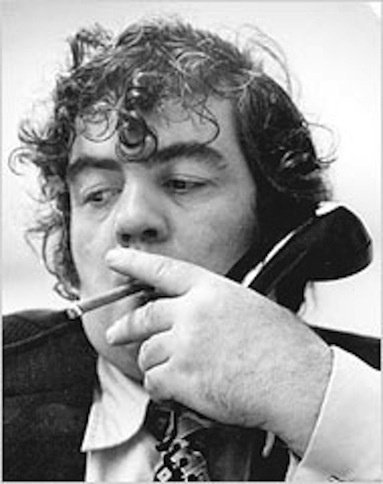


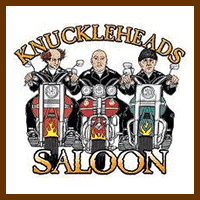

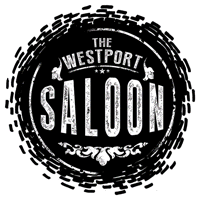


Thanks for sharing Breslin’s words. A different angle, at least for me, on one of the most written about events in modern US history.
Thanks, Stomper and that was my intent. No one needs another cut on another conspiracy. I thought I felt an urge to write something, since it’s the 50th anniversary, but to do so and actually add value to the proposition, I thought these words, largely overlooked, largely unread by run of the mill Americans, were worth sharing. I’ve read his essay 100 times if I’ve read it once. As I said, I hate linking, over quoting or making a story out of citing 100 other pieces to make up my piece, but felt this was worthy.
Yep, nice piece, so thanks for posting. Always liked Breslin and now I also like a gravedigger named Clifton Pollard.
can we please put this kennedy assasinationto rest.
Its old…how many reports/studies/conspiracy theories willwe have
to live thru as old timers still want to reenact this horrible
event.
lets dead men rest.
and so should all the money grubbing theorists who only want to make
a buckoff the dead president.
glad I wont be here for the 100th anniversary!!!!!!!!!!!!!!!!!!!!!!!! hahaha
Actually, if you read the whole piece, the intent of posting it was to counter the run of the mill conspiracy stories. Breslin is a master with words. It is the 50th anniversary of the assassination of a President; I felt it worthy and fitting.
Thanks for posting
You’re welcome, Mark; I do what I can.
Well done sir.
Thank you, sir.
most excellent paul. very nice take. of all the near ‘hoopla’ of the 50th anniversary, this post captures just the right tone and angle. thanks.
Thank you, Mike, always appreciate your comments.
The intertwining of how two people’s daily routine crossed for one day makes for a wonderful look at history.
History isn’t just some date on the calendar, it is where an event changes the normal, everyday routine and leaves its mark on day-to-day things.
Used to be when you opened your morning newspaper there was some columnist who made you day better with his writing. Just their style made you read and enjoy the most mundane of topics.
Well spoken, Orphan; thats what Breslin it to me. I used to be an editorial / columnist / essay junkie as a kid, its sure not what it used to be, huh?
I can understand the view of those who think this is a topic that is over discussed but for political and historical junkies like myself, the assassination is a line of demarcation in our history. Gives rise to discussion on “what ifs”. We’ll never know how Vietnam would have played out. Certainly LBJ hammered home civil rights where JFK might not have or might not have been able to. Had he lived, his personal behavior may have brought him down. JFK was a fiscal conservative, especially in his view of taxes and the role of government, and was nowhere near the liberal his younger brother was. When looking at “what ifs” , the assassination of RFK probably changed the course of our history much more than JFK’s. Anyway, thanks for tossing some red meat out there for us, Paul. The 50 year anniversary is an appropriate time to look back and wonder.
Stomper, the same people who are tired of conspiracies still claim ObamaCare is the messiah of health care reform, both require deeper thinking than what’s been exhibited here in the comment section.
I don’t want to get into a whole who-dun-it thing, but common laws of physics don’t support the Warren Commission. If you want my bottom line theory (you’re about to get it, regardless) I think the final words of Oswald, before he took the bullet from Ruby, tell the story. He said “I’m just the patsy here…”
It’s my opinion Oswald had an epiphany when he pulled the trigger. I think he thought he was the only guy, was told he was the only guy. But when he took the shot even he was smart enough to know that from timing, direction, velocity and collateral damage, the President had been shot and it wasn’t his bullets that did it. Even though he thought he had, intended to and wanted to, the shot came from elsewhere and I don’t think he had any idea till that moment.
I was allowed access to the book depository site through client connections I had in Dallas. I sat in that window; I could see exact location the limo was in at the time of the shot. I watched traffic come by and tried to play that out in my own mind. While not a sniper, I am a decent marksman. Given the rifle he had to deal with, there isn’t a chance in the world I could have made that shot. I don’t think he could have either.
Glad you enjoyed the piece, I thought it was fitting.
Another great piece Paul. Throw back Thursday comes to life. Jimmy Breslin had a real knack for the presenting the human element to the stories he covered. An art form that has fallen by the way side.
Thanks, Jeff; glad you enjoyed it.
jack kennedy began his run for President by sitting in his car outside The Stork Club waiting for bimbettes to emerge so that he could “screw” them (I’m being polite). jimmy breslin was not a Kennedy reporter, he was an altar boy with a crush. this homoerotic obsession of left-wing journos for the debauched but grinning Irish lad is a freudian mystery undetected, unreported.